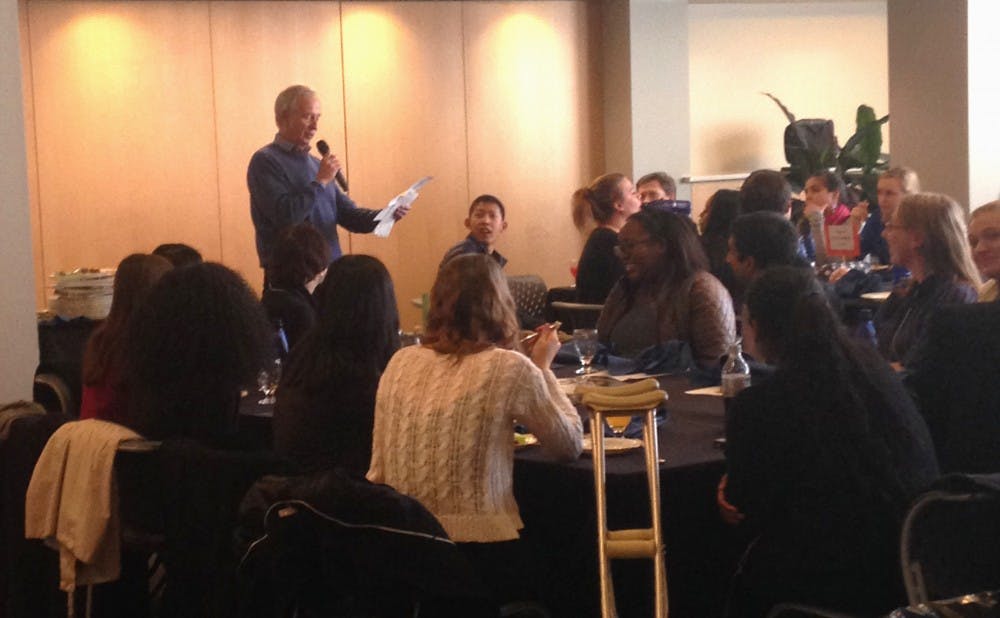While most students spent their last days of winter break preparing for classes or moving back to campus, about 100 students chose a different path—investigating a murder.
This year’s Winter Forum took a hands-on approach, giving students the opportunity to learn about science and ethics in the criminal justice system through working on a hypothetical case—the "murder" of Steve Nowicki, dean and vice provost for undergraduate education. The three-day forum, titled “To Catch a Killer: Investigating the Brain,” tied together philosophy, law, ethics and neuroscience.
“It’s a day of profoundly mixed emotions for me,” President Richard Brodhead quipped during his address to the forum Tuesday. “Happy, because I’m so proud to be part of a university where students are so driven to learn…. And less happy, because we had to pay the high price of the death of my beloved colleague Steve Nowicki.”
The interdisciplinary nature of the subject required bringing together faculty experts from across the University. Faculty hosts Nita Farahany, professor of law and philosophy; Scott Huetell, the Jerry and Patricia Hubbard professor of psychology and neuroscience; and Walter Sinnott-Armstrong, Chauncey Stillman professor of practical ethics, worked for more than a year to plan the program.
"The combination of our perspectives brought together something unique for the students," said Farahany, who also serves as the director of the Duke Science and Society initiative.
Bringing such a variety of disciplines into the conversation was designed to give students a more thorough understanding of gray areas in criminal justice—the limitations of science in understanding a crime scene, the ethical questions raised by new technologies and the ways in which all of these intersect, Farahany noted.
Students saw the "crime scene" at the start of the forum, and days of guest speakers and lectures gave them the practical foundation they needed to solve Nowicki's "murder."
Among the guest speakers were Ronald Cotton and Jennifer Thompson. Cotton was falsely imprisoned for 11 years for the rape of Thompson before being found innocent through DNA testing. The two have since written a book together and give talks on judicial reform, the fallibility of eyewitness testimony and forgiveness.
"Learning about how he was able to forgive and they were able to turn this tragedy into something so powerful and meaningful was really interesting," senior Ernst Casimir said, adding that he appreciated the chance to speak one-on-one with Cotton. "That isn't something I get to experience regularly in the classroom."
Dean of Students Sue Wasiolek attended the forum for the first time this year and said she was impressed by the students' excitement to devote the end of their winter break to the work.
"I'm most impressed by the preparation of the faculty—the level of detail—and the overall level of interest and engagement by the students," Wasiolek said.
"To Catch a Killer" marked the sixth year the Winter Forum has been held and student interest remained consistent with years past, with about 100 participants, Nowicki said. The interdisciplinary nature of this year's forum required several hosts—Duke Science and Society, the Kenan Institute of Ethics, Bass Connections, the School of Law and the Office of Undergraduate Education.
And as for Nowicki's favorite part of the forum?
“Being carried out in a body bag,” Nowicki said, reaching for his cell phone to share a photograph. “That was an experience I really enjoyed.”
Get The Chronicle straight to your inbox
Signup for our weekly newsletter. Cancel at any time.

